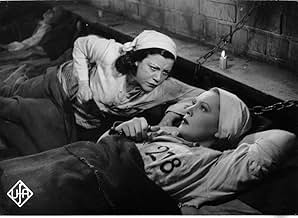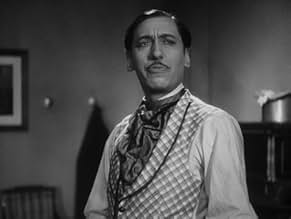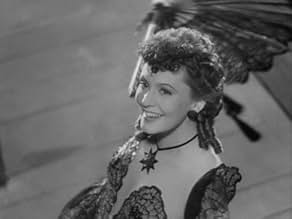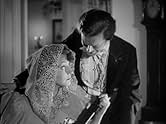Adicionar um enredo no seu idiomaIn 1846 the actress Gloria Vane is performing at the Adelphi Theatre, London. She is in love with the destitute nobleman Albert Finsbury, who is shortly departing to Australia to become an o... Ler tudoIn 1846 the actress Gloria Vane is performing at the Adelphi Theatre, London. She is in love with the destitute nobleman Albert Finsbury, who is shortly departing to Australia to become an officer in the Queen's regiment. He is supposed to pay his debts before leaving and uses an... Ler tudoIn 1846 the actress Gloria Vane is performing at the Adelphi Theatre, London. She is in love with the destitute nobleman Albert Finsbury, who is shortly departing to Australia to become an officer in the Queen's regiment. He is supposed to pay his debts before leaving and uses an altered cheque to do so. After Finsbury has left, the forgery is discovered. To protect h... Ler tudo
- Direção
- Roteiristas
- Artistas
- Prêmios
- 1 indicação no total
- Direção
- Roteiristas
- Elenco e equipe completos
- Produção, bilheteria e muito mais no IMDbPro
Avaliações em destaque
But he also made some (largely forgotten) films in Germany. I don't know why his German films are seldom seen. Is it because one suspects a Nazi flavour? This is not realy the case. Sierck left Nazi Germany relatively late (1937) but his second wife was Jewish and politically he was certainly no supporter of National Socialism. Is it because his German films are real melodrama's? Could be. In his American films beneath the melodrama there is a second layer with hidden criticism on bourgeois moralism. This second layer is absent in his German films if only because they do not play in bourgeois circles but more often in aristocratic circles with their own codes of honor.
This is not to say that his German films are not worth watching. His two films with the Swedish star Zarah Leander ("Habanera" and "Zu neuen Ufern", both of 1937) are certainly entertaining. Of this two films I prefer "Zu neuen Ufern", in which Zarah Leander plays a tragic woman who seems to fall for the wrong man. The film does have a touch of Brecht in it, and this is not by chance because a few years earlier Sierck directed "The threepenny opera" for stage.
Mistreated by her lover, she nonetheless takes the blame for his criminal activity, accepting a prison sentence, in dim hopes of reuniting with the scoundrel years later. A twist of fate allows her to leave prison, but of course at a price. The predictable plot moves along, including 2 memorable songs, the heartbreaking "Ich steh' I'm Regen" and the up-tempo "Yes, Sir!", both becoming Leander trademarks.
Like Joan Crawford, Marlene Dietrich, Bette Davis and other Classic Cinema Divas, Zarah Leander has achieved cult status. "Zu neuen Ufern" would be the first film to be mentioned by any fan. Enjoy the drama, and enjoy the queen...the Drama Queen of Old German Cinema at her best!
The story is very melodramatic but not very convincing. A man makes bad use of his fathers money for the sake of a Vaudeville singer. She is therefore sent to Australia for imprisonment. The man joins the army and they meet again...
Nevertheless you will recognize some elements of Sirk's later cinematography also in this movie, like the frequent use of mirrors an element which was later adapted by his great admirer Fassbinder). A ridiculous element of Nazi censorship is the fact that the dancing girls are forced to dance to a mock version of Offenbach's Can-Can.
In prison, accompanied by her fellow female inmates, she sings a beautiful, sad song directed to her rascally lover: 'I have such a deep longing for you'. She is released from Paramatta prison in order to marry a handsome farmer (played by Viktor Staal) - but she runs away from him, only to discover that the Birgel character is on the verge of marrying the governor's daughter.
Heartbroken, she tries to return to prison, then to the stage, but is booed by the Australian audience for her gloomy act - a real irony this, since the song she's singing, 'I'm standing in the Rain' is a real beauty, haunting and melancholy, making full use of Leander's lovely contralto voice. Zu Neuen Ufern is a very emotionally involving film, a pointer to the films Detlev Sierck would later make in the US under his anglicised name, Douglas Sirk. Perfect for a rainy Sunday, and proof of the star power of Zarah Leander.
Você sabia?
- CuriosidadesGerman censorship visa # B. 45781 delivered on 20-7-1937.
- ConexõesFeatured in Hitlers Frauen: Zarah Leander - Die Sängerin (2001)
Principais escolhas
Detalhes
- Tempo de duração1 hora 46 minutos
- Cor
- Proporção
- 1.37 : 1
Contribua para esta página

































